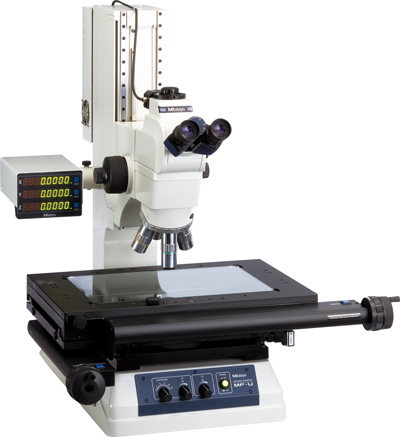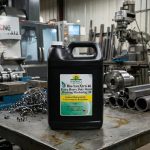MF and MF-U Measuring Microscopes
MF and MF-U Measuring Microscopes
Mitutoyo America Corp. announces power-driven Z-axis models for the MF and MF-U line of measuring microscopes.

Mitutoyo America Corp. announces power-driven Z-axis models for the MF and MF-U line of measuring microscopes. The newest models include Z-axis motor-drive capability while retaining manual operation on the X and Y axes. The electrically driven movement for focusing provides better operability and relieves operator fatigue.
The viewing head is controlled using a jog shuttle placed near the remote control box. Limit the downward stroke of the head at any point by using the motor drive to set the lower limit of the head travel, which prevents the objective lens from colliding with the workpiece.
Additional features:
• Built-in quick-release mechanisms and the zero-set buttons. Intuitively perform XY movements using the quick-release mechanisms for simple and fast positioning that allow for hands to be kept on the handles at all times. Because the counter zero-set buttons are located near the handles the operator can concentrate on the eyepiece during measurement without the need to release the XY handles. Combine it with the optional image unit to perform ultra-fast, one-second focusing.
• Best-in-class wide field observation. The eyepiece field number of 24 (for WF10X) offers a wide field of view that helps prevent eye fatigue from extended observation of measurement.
• Choice of XY measurement range. Various stages are available to provide measurement up to 400 (X) x 200 (Y) x 220 (Z)mm.
• Image Auto-focus in combination with image unit. An optional image auto-focus feature allows the microscope to focus in just 1 second while achieving a focus as sharp as the human eye. With its 3-megapixel camera, high-resolution image observation is standard.
• Newly designed sliding nosepiece can be installed at the factory. Because these microscopes come with a turret nosepiece (factory-set option) attached, the magnification can be changed quickly. In addition, an LED ringlight can be attached to the nosepiece.





